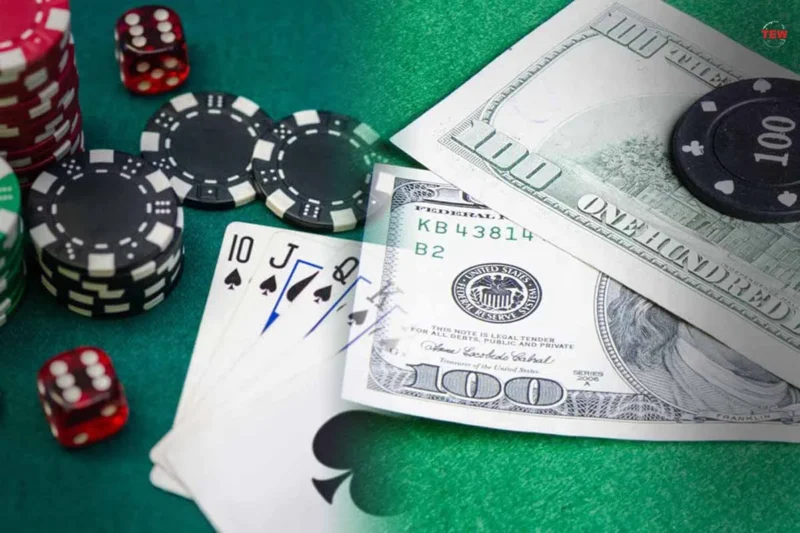Is the secret to winning big all about big bets? Or is it another myth spun by gamblers and high rollers? Every bettor dreams of striking it rich, but the truth lies in strategy and discipline. Without a clear approach, even the luckiest player can lose it all.
Key Points:
- High rollers often enjoy perks, but that doesn’t mean better odds.
- Tracking spending is essential for keeping your funds intact.
- Casinos use psychology to keep you betting longer.
- Setting limits prevents emotional decision-making.
- Smart betting isn’t about luck; it’s about consistency.
Do High Rollers Have Better Odds?
High rollers command attention. Fancy suites, private tables, and exclusive rewards are just some of the perks casinos offer to their big spenders. But do they actually have better odds? Not really. The rules of the game stay the same, whether you’re betting a hundred dollars or a million.
The illusion of better odds comes from the sheer volume of play. Betting large sums might stretch your bankroll further in percentage terms, but the house edge doesn’t change. Even the flashiest gambler faces the same statistical reality as anyone else sitting at the table.
Takeaway:
Spending big doesn’t make the odds bend in your favor. It just magnifies the stakes.
How Do Casinos Treat High Rollers?

Platforms like Casino 168 “roll out the red carpet” for their VIPs, offering more than just a game. High rollers often receive personal hosts, luxury stays, and customized bonuses. They ensure a seamless experience with fast deposits, withdrawals, and enticing game options like live tables and baccarat.
But what’s the catch? It’s simple: big spenders bring in big profits. Casinos pamper their high rollers to keep them in action. The longer you play, the more they stand to gain, regardless of how much you’re winning.
What’s the Psychology of Betting Big?
Gamblers are driven by adrenaline and the fantasy of a life-changing win. Betting big isn’t just about money—it’s about chasing the thrill. However, emotions often override logic, leading to impulsive choices. That’s why understanding the psychology behind bets is crucial for protecting your bankroll.
Casinos are designed to influence your decisions subtly. Flashing lights, upbeat music, and the promise of instant success create an environment where restraint takes a backseat. Without clear limits, it’s easy to fall into the trap of “one more round.”
Tips for staying in control:
- Decide on a fixed amount you’re willing to spend before you start.
- Walk away after hitting a win or loss limit.
- Take regular breaks to reset your focus.
Should You Track Your Bets?
Yes, without exception. Tracking your spending might feel tedious, but it’s the only way to stay in control. The temptation to place a few “extra” bets increases when you don’t have a clear picture of your funds. Knowing where your money goes keeps the game fun and prevents unnecessary losses.
Here’s a simple way to track:
- Divide your funds into daily limits.
- Use a notebook or app to log every bet.
- Avoid chasing losses—stick to your plan.
Is Setting Limits the Secret to Winning?

Limits are non-negotiable. Betting without a plan often leads to spiraling losses. By setting boundaries, you create a buffer between your emotions and decisions. Think of limits as safety nets—they won’t guarantee a win, but they protect you from losing more than you can afford.
How to set effective limits:
- Decide on a session length before you begin.
- Set both win and loss thresholds.
- Stick to your limits no matter how the game unfolds.
Common Myths About Bankroll Management
Myth 1: “Betting More Increases Your Chances of Winning.”
Fact: The house edge stays constant no matter how much you bet. Higher stakes only lead to higher risk.
Myth 2: “High Rollers Always Leave With Big Wins.”
Fact: Casinos make money by keeping players at the table. Even high rollers face losses.
Myth 3: “You Can Outsmart the System.”
Fact: While strategy helps, the odds are stacked in favor of the house. No system guarantees success.
Why Do Players Lose Control?
Gambling triggers the same reward centers in the brain as other addictive behaviors. The rush of a win can be so intoxicating that it blinds players to the risks. On the flip side, losing often pushes gamblers to chase their money, creating a cycle of poor decisions.
Breaking the cycle:
- Know when to stop, even during a winning streak.
- Treat gambling as entertainment, not a guaranteed income.
- Surround yourself with supportive friends who respect your limits.
Practical Tips for a Smarter Bankroll Strategy

- Divide and conquer ─ Split your funds into smaller portions for different sessions.
- Avoid all-in bets ─ Spreading your money across games reduces the risk of a single bad round wiping you out.
- Use rewards wisely ─ Loyalty points and bonuses can stretch your funds but shouldn’t dictate your decisions.
- Stay calm ─ Emotions are the enemy of sound strategy. A clear mind makes better choices.
Final Thoughts
Managing your bankroll is about more than money—it’s about staying in control. High-stakes gambling carries both risks and rewards, but the thrill should never overshadow the importance of discipline. Success comes from smart choices, not reckless bets.
Ready to test your luck? Stay sharp, and remember: the house edge may be real, but with strategy, the game can still be yours.



